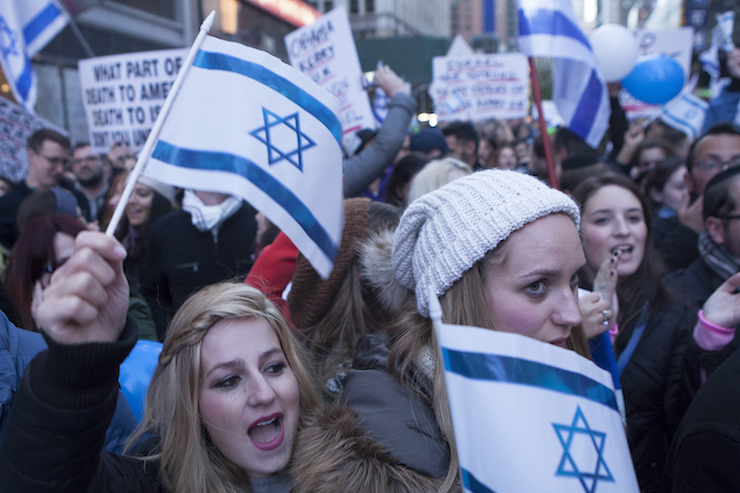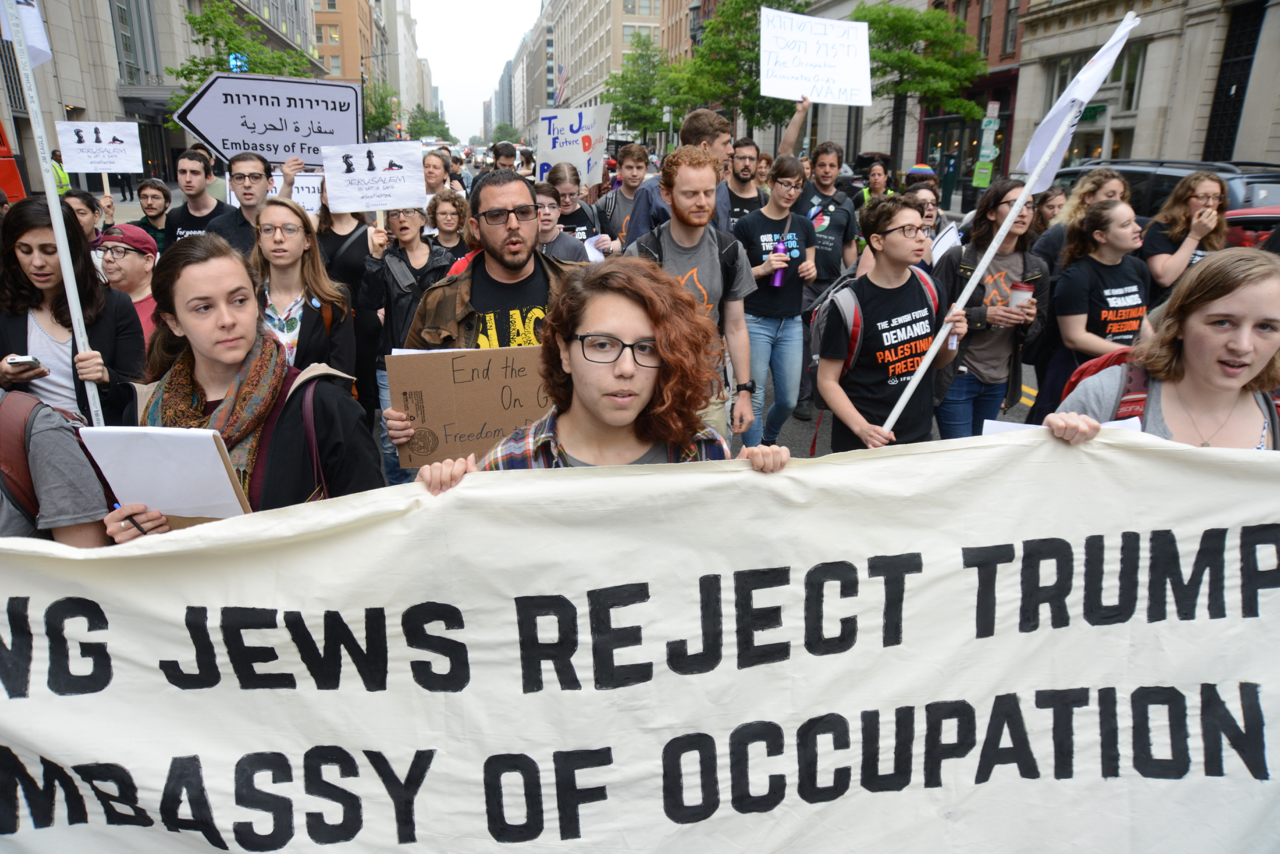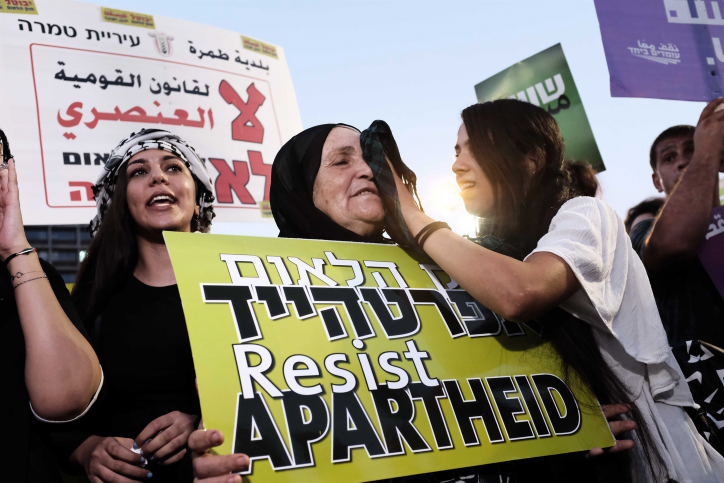The IHRA initially sought to combat racism against Jews and Holocaust denialism, but its definition of antisemitism serves as a tool to silence all criticism of Israel, making it harder to identify actual forms of anti-Jewish hatred.
By Amos Goldberg and Raz Segal

There is a growing tendency among both Jews and non-Jews to label those with whom they have profound political differences, especially on the subject of Israel-Palestine, as antisemitic. The accusation is a severe one: in most countries in the West, antisemitism is considered a taboo, and the identification of a person or organization with antisemitism often renders them illegitimate in the public arena.
Two major techniques facilitate such allegations. The first relates one’s claim very illusively to some antisemitic imagery. The fact that 2,000 years of hostility and hatred toward Jews have created a storehouse of anti-Jewish imagery so rich – and at times contradictory – means that nearly any claim can be linked to at least one of those images.
Through manipulation of these images, along with a little imagination, one could identify any form of criticism as antisemitic. This kind of logic is deployed by supporters of Israel’s occupation and nationalistic government in order to delegitimize anyone who dares criticize Israeli policies.
The second technique draws on the definition of antisemitism formulated by the International Holocaust Remembrance Alliance. Founded in 1998 (under a different name), the IHRA is a political body with considerable political power, uniting government representatives and Holocaust scholars from 33 countries, nearly all of them in the West. The IHRA aims to spread and institutionalize teaching and research on the Holocaust, commemorate the Holocaust, and struggle against antisemitism.
The IHRA agreed on a definition of antisemitism in 2016, along with a list of examples, based on previous definitions. It has since become a kind of “soft law” that is binding in many institutions and even states across the world. The problem is that the IHRA definition deals obsessively — more than with any other topic — with the degree of antisemitism in criticism of Israel, making it far more difficult to identify real instances of antisemitism, while casting a cloud of suspicion over nearly all criticism of Israel. Meanwhile, the burden of proof lies with critics of Israel, who are constantly asked to prove that they are not anti-Semites.
These two dubious techniques were recently displayed in an article published in Haaretz by Yehuda Bauer, which helps to identify some of the grave and fundamental distortions of the current discourse on antisemitism. Bauer claims that the demand for the Palestinian right of return—which is a consensus among Palestinians—is not only antisemitic but even proto-genocidal, no less. This, even though Bauer himself characterized some of the events of the 1948 War as “ethnic cleansing” in his book, “The Jews: A Contrary People.” Can the very demand that justice be done after “ethnic cleansing” – even if the writer thinks that it should not be realized – be considered antisemitic? Is this not a reversal of roles: the (real) victims become (imaginary) mass murderers within this warped discourse on antisemitism?
Bauer, however, went even further, accusing Israeli historian Daniel Blatman of adopting an antisemitic stance for daring to criticize sharply the IHRA, which Bauer helped establish and where he serves as honorary chairperson to this day. Blatman argues that the definition is dedicated to protecting Israel from any significant criticism. Yet in Bauer’s eyes, the argument that the IHRA definition exerts powerful and harmful influence is based on the antisemitic image of Jews as possessing disproportionate power and ruling the world. Here, too, Bauer’s claim is weak. Instead of engaging in a meaningful way with the critique of the definition, the accompanying examples, and its terrible consequences on the struggle against the oppression of Palestinians, supporters of the definition, Bauer included, prefer to associate criticism of it with antisemitic imagery.

A similar accusation was also made recently against the German magazine Der Spiegel after it published an unflattering investigative article on the pro-Israel lobby in the country. The article sparked vehement backlash by Jews and non-Jews alike, including Felix Klein, Germany’s federal commissioner for the fight against antisemitism, who focuses mainly on defending the government of Israel. A clarification published by the editors of the magazine — which they did not publish following similar investigations — pointed out that in recent weeks they had carried out similar investigations into two non-Jewish lobby organizations in Germany with no links to Israel.
Defending the settlers, not the Jews
These two techniques are used very frequently and with dire consequences. Another example came in 2017, six years after a young scholar from England who had spent time at an academic institution in Israel published an article about her impressions from a tour of Bethlehem in the occupied West Bank came to light. Among other things, she wrote that the memory of the Holocaust should not give Israel moral dispensation for the occupation. Six years later, Sir Eric Pickles, a Conservative member of British Parliament, found the article and called it “one of the worst cases of Holocaust denial” he has seen in recent years.
Pickles, along with the Campaign Against Antisemitism, demanded that the scholar be dismissed immediately, relying not solely on the IHRA definition. The British university where she was teaching at the time convened a panel of experts to look into the matter. Although it found no indication of antisemitism in the article, the discussion continued and the scholar’s good name was tarnished. She eventually left the university and move to another institution.
The message to the public — and to scholars — was clear: it is better to forget about free speech and not criticize Israel. After all, doing so means you could be subject to a grave accusation.
Today the attempt to suppress criticism of Israel based on the IHRA definition also extends to the campaign against the European Union’s position that products made in Israeli settlement must be labeled as such (which the Simon Wiesenthal Institute listed this as the third most serious anti-Semitic incident in 2015). It appears, then, that the IHRA definition defends Israeli settlers more than it worries about the safety of Jews around the world.

Accordingly, at the end of June, a bill that would ban expressions of antisemitism in public schools and public universities was introduced in the New Jersey State Senate. There is certainly a need to fight against antisemitism in the United States, particularly in New Jersey, the state with the third highest reported antisemitic incidents in the United States in 2018, with approximately 200 reported antisemitic incidents.
It is unlikely, however, that the bill, which includes sections modeled on the IHRA definition, would aid in the struggle against antisemitism in the Garden State, as its main purpose seems to be the silencing of criticism of Israel (it forbids, for example, peace or human rights investigations that focus solely on Israel). But the idea that only Israel is the target of this kind of criticism is not only divorced from reality, it aims at creating a chilling effect. It suffices, for example, to take one look at the list of people charged by the International Criminal Court in The Hague, which includes not a single Israeli, to ask ourselves whether there is a need for such a provision in the bill, apart from the desire to suppress any criticism of Israel.
Yet the damage caused by the bill lies not only in the fact that it aims to defend a powerful state – Israel – more than it seeks to protect Jews in New Jersey. The more harmful damage is caused by the way in which the bill’s attempt to silence criticism of Israel’s 52-year-old military occupation (one of the longest running in the world), which includes dispossession, humiliation, expulsions, and daily violence against Palestinians, plays into the hands of avowed antisemites who hate Jews in the U.S. while admiring Israel.
Diverting attention from real antisemites
Richard Spencer, one of the prominent voices on the nationalist right in the United States, provided a prime example of this connection in July 2018 when he expressed fervent support for Israel’s Jewish Nation-State Law. This came a little over half a year after he called Israel an inspiration and a model of ethno-nationalism, while at the same time explaining that “Jews are vastly over-represented in what you would call ‘the establishment’ and white people are being dispossessed from this country.” The IHRA definition certainly aims to fight against such statements and people such as Spencer, but its obsession with silencing criticism of Israel diverts attention from real antisemites who may support Israel while simultaneously posing a serious threat to Jews in the United States.

Put differently, one does not need the IHRA definition to identify people like Spencer as antisemites, but once antisemitism becomes identical with criticism of Israel, people like Spencer are off the hook. After all, they are great supporters of Israel.
Indeed, the connection between Jews and the alleged dispossession of white people in the United States was the motivating factor for the white supremacist who carried out the massacre at the Tree of Life Synagogue in Pittsburgh mere months after Spencer’s remarks. In a statement published on social media a few minutes before he opened fire, the shooter wrote that Jews are helping refugees enter the U.S. and destroy it.
This fear of “white genocide” possesses the minds of white nationalists across the world. It is impossible to struggle against this grave danger to Jews, refugees, and others whom nationalists view as an existential danger to their ethno-nationalist vision by silencing criticism of Israel and its ethno-nationalist vision, which views Palestinians – residents of the occupied territories, refugees from the 1948 war, and citizens of Israel (as well as refugees from Africa) – as an existential danger. But the IHRA definition and its derivatives contribute precisely to that.

Right-wing politicians, including Israeli Prime Minister Benjamin Netanyahu and Israeli right-wing media, have understood that the focus of the fight against antisemitism has shifted from racist nationalists to criticism of Israel, and they use the catastrophic IHRA definition for their purposes. In contrast to Bauer’s apparent naivety, the right understands very well the powerful potential of the IHRA definition, not only for the purpose of shielding Zionism from any criticism, but also for defending the occupation itself.
The government of Israel and its representatives, as well as many pro-Israeli organizations all over the world, are remarkably successful in silencing criticism of Israel’s policies by playing this card. Using the IHRA’s poor definition of antisemitism, they have succeeded in completely changing the discourse: rather than talk about the occupation, the Nakba, or its violation of national, human and civil rights, the dominant public discourse now revolves around what is or is not forbidden when it comes to criticism of Israel, and to what extent said criticism is antisemitic. In this reality, Israel no longer needs to defend itself against allegation — it has a free hand to throw around accusations.
Professor Amos Goldberg teaches at the Department of the Jewish History and Contemporary Jewry at the Hebrew University of Jerusalem. His research focuses on the Holocaust and its memory. Dr. Raz Segal is Assistant Professor of Holocaust and Genocide Studies, Stockton University, New Jersey. A version of this article was first published in Hebrew on Local Call. Read it here.

